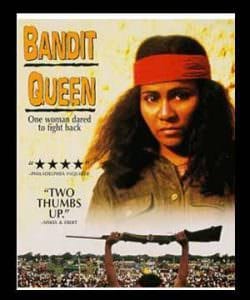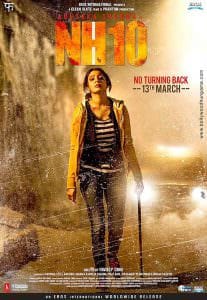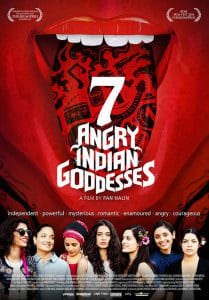Vigilantism can be romanticised, but falls short with its system of delivering punishment. Vigilante justice lacks legitimacy as it is both unregulated and unaccountable. Moreover, since anyone can impose their own rules, it often ends up as gangsterism. In a country like ours, where masses of women are vulnerable both inside and outside their homes, where does one go to demand justice, and how does one make our spaces safer for women? While vigilantism may not be the answer for delivering justice, one cannot ignore the women in history who have acted out as vigilantes when all else failed them.
Among the numerous accounts of domestic and sexual violence reported each year, most cases are poorly investigated and leave women feeling further victimized. It is when state mechanism has failed, with its inadequate laws and untrustworthy authorities, that women were left with no choice but to take matters in their own hands. “There are so many struggles that women here have to go through, it never seems to stop,” is what Sampat Devi Pal, the founder of Gulaab Gang from Bundelkhand, was quoted as saying, “We don’t like using violence, but sometimes that’s the only way people listen.”
While the struggle to dismantle patriarchy and the oppressive system where rape culture persists continues, at times it brings relief to see women in fiction/popular culture especially in Bollywood, take matters into their own hands. Here’s a list of Indian films discussed below where female vigilantes or vigilantism resonates the message of growing resentment towards a delayed justice system for women.
1. Bandit Queen
While Phoolan Devi failed as a biographical drama to represent the real accounts of Devi’s journey as a dacoit, what it offers is a victimised Phoolan Devi who takes up arms as a result of repeated sexual assaults and abuse. Phoolan’s struggle is not just against her rapists but also against the upper caste men and local authorities who strip her off any dignity she had gained with the title of ‘Devi’. But one also questions why ‘Devi’ was a necessary suffix for the upliftment of her status. The film offers an easy conclusion to why Phoolan Devi becomes a dacoit, i.e., due to constant sexual abuse and her vulnerable position as a woman from a non-dominant caste, who separated from her husband.
The film portrays local authorities who only answer to upper caste men, as is most often the case, and who do not much care about a non-Savarna female. They rather see her as a sexualised body for their access. The Thakurs (upper caste men) are the archetypal villains and Phoolan is our hero who fights for justice. We are swayed by her intense suffering and end up celebrating the public humiliation of Phoolan’s husband and abuser. We are also reminded of the fact that ours is a country where marital rape is still not recognised.
The personal becomes the political as Devi’s next target are the Thakurs whom she is not able to catch. Therefore, as villains run loose, innocents are killed while the viewers are compensated with the joy of seeing Phoolan entering into politics. However, there are no answers offered by the film towards the overall safety and protection of women neither is there a debate on our social justice system. While Phoolan may be reckoned as a symbol of female strength in Indian films, hers is a personal battle as she does not offer any solutions to overall problems of women being treated as sex objects.
2. NH10
NH10 is a thriller that is loosely inspired from the Manoj-Babli honour killing case in 2007. The film centers around a young couple, Arjun and Meera, on a road trip who end up as witnesses to a case of honour killing and are later hunted by the perpetrators. Once again the authorities fail to reap justice as the police themselves are confidantes of the perpetrators. However, Meera is unlike any other Bollywood heroine, who despite being terrified surprises us with her courage.
When things go completely awry, we find Meera’s partner wounded. Meera, instead of losing hope, goes all the way to find the right person to report the crime. When she finds that everyone along with the village chief is involved, she kills all the men and we are thrilled to see her survive. However, we also need to take note of the fact that the honour killing was ordered by Ammaji, a woman herself. One needs to be reminded that patriarchal laws are practiced by women as well, while being careful of the women-against-women stereotype.
3. Parched
Parched is the story of four women who run away from their village in hope of a better life, far from the wretchedness of patriarchy, traditions and customs. Among others, this film does not overtly present revenge in terms of direct violence as Lajjo’s husband accidentally falls on fire. Characters like Rani and Lajjo display subtle shows of power. Their strength lies in a shared sisterhood – the crux of the film. Janki is the child bride who tries to escape arranged marriage by chopping off her hair but her attempt fails to save her.
When things get out of hand, the women finally take a stand to save themselves by getting away from an oppressive life. It is sad that most women in our country struggle to take a stand against patriarchal oppression, for fear of repercussions which follow. Many still persist in marital relationships despite being abused. The good thing about this film is that it is not about women against men, but women against oppressive structures and sends out a message for solidarity and the need for female companionship.
4. Angry Indian Goddesses
Angry Indian Goddesses was described as India’s first “buddy female pic”. However, the film was signed off as overambitious for dealing with too many issues concerning women in our country in one go. It is a fictitious account of seven young women who come together for a wedding in Goa – Frieda, a photographer and bride-to-be; Suranjana(Su), a businesswoman; Joanna, an aspiring actor; Madhureeta(Mad), a struggling singer; Nargis, a social activist; Pam, a ‘trophy wife’; and Lakshmi, Frieda’s house-help.
The film sets out to break multiple stereotypes (for example, the male gaze is replaced by the female gaze). However, male and female egos come clashing as a group of men harass these women and are meted out a bold response from the women. Later, one of the girls(Joanna) is found to have been sexually assaulted and murdered on the beach by the same group of men. It is as though masculinity shouldn’t be challenged at all.
The women seek justice but encounter a policeman who not only tries to humiliate them but also places them partly responsible for the attack. As usual, the women were not supposed to be out late at night, drinking, and wearing short clothes whereas nobody out there is questioning men responsible for the attack. Once again, one is reminded of the lack of faith not only in a patriarchal society that neglects women, but also in the criminal justice system that downcast women as victims of sexual abuse while perpetrating stigmas around them.
This is when Su takes the lead and runs with a gun. She along with Mad finish off the five rapists. The film ends with a collective voice that stands in solidarity with these women who escape being caught by the police. It could either be a call for all women to stand together in times of need such as this, or it could be promoting vigilantism that fills the viewer with glee.
5. Akira
Akira is an action drama featuring Sonakshi Sinha in the lead. Akira is an angry young girl who is put in a juvenile jail for being accused of throwing acid on a gang member. When Akira is released, she comes out as a brave woman who can not only defend herself but also develops a social conscience. As strong as Akira is, she is seen as wicked and sidelined by others both in her house and in college. Society cannot fathom seeing a strong woman who can take care of herself, and instead treats them as abnormal.
Akira is seen fighting against the corrupt police state which proves the innocent as guilty. But in the end, Akira takes justice in her own hands and we are given the message that people like Akira are needed as our governments are corrupt. Overall, Akira’s character appears to be a female version of Salman Khan or the likes with similar action sequences and cliched dialogues. Seems like machismo and masculine energy are the devices to make the woman’s fighting spirit acceptable to a larger audience.
Also read: Film Review: On Sairat and Custodians of Love
About the author(s)
An idealist who feeds on compassion, travel and good company. A film enthusiast, a poet, writer, activist and feminist.










First off, the inefficiencies of our justice system hurts both men & women equally – there are enough and more Bollywood stories about men vigilantism fighting an unjust system – and that is a different debate about how can we make our justice system better.
The bigger question is: Where do we want to peg the new norm of gender-balance in the Indian society? The new norm is eventually what will get promoted and eventually what the society will gravitate towards. If we believe we’re a patriarchal society, is the answer to put the new norm at a matriarchal society? Will that balance it out? Or will it just swing the pendulum to the other extreme and create resentment against females in males? Resulting in an all out war and a self-destructing society. Will that solve it for us in this society? Or is the answer to pick a new norm that is fair and equal and then relentless drive both men & women towards it?
There are already lacs of examples where the pendulum HAS swung the other way and women are abusing marital laws as extortion, humiliation and destruction tools on men & eventually on their own families. Even educated/earning/capable women do not hesitate to misuse these laws – why? – simply because they are there – they are there for women in general, never mind if I’m capable of working & earning my living – I will still abuse the laws and get alimony and maintenance because the law gives me that provision. There go all values and scruples out the window when women do that. Why would men trust women when they experience & hear stories like this? Why would men marry women if they know they can be taken for a ride at anytime because of ridiculous, biased marital laws like 498A, DV, etc. etc.
As human beings, who gave women the right to live off men for the rest of their lives? Men aren’t ATM machines. They are society builders and a prime moving force in their own right, do not slow them down by riddling them with these chains of laws that perfectly capable women latch onto and drag on the ankles of men who can contribute to the Indian society & the world. Similarly, women are free to go their own way – if you do not trust a man, do not marry him. If you get into a wrong marriage, get out of it without scarring/hurting the man (same for men) – move on, work hard, realize your own potential and build your own life, no one is stopping you.
Happy to engage in meaning full dialogue @EqualLawsNow